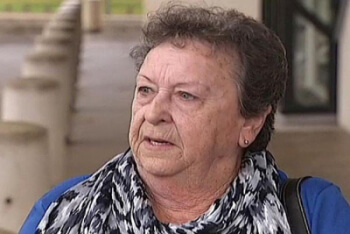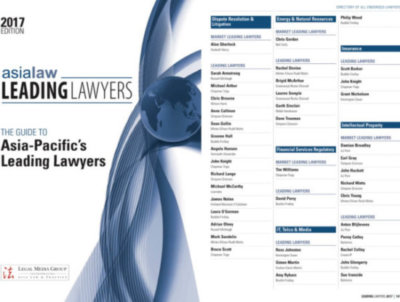D’Arcy v Myriad Genetics Inc & Anor: Australian High Court rules that isolated genetic material is not patentable subject matter.
In a reversal of the previous decision of the Federal Court of Australia, the High Court of Australia (highest Australian court) ruled on 7 October 2015 that isolated genetic material coding for a polypeptide (in the form of DNA or RNA) is not patentable subject matter (http://www.hcourt.gov.au/cases/case_s28-2015).
The judgment held that an isolated nucleic acid coding for the BRCA1 protein with specific variations indicative of breast and ovarian cancer (as claimed in claims 1-3 of Australian Patent No. 686004) does not fall within the meaning of ‘manner of manufacture’ in s 18(1)(a) of the Patents Act 1990. Consequently these claims were invalid and revoked.
Previously the Federal Court held that an isolated nucleic acid was chemically, structurally and functionally different from a nucleic acid inside a cell, and a product of human action (akin to a chemical compound). However the High Court found that the essential element to the invention was the informational content of the claimed isolated genetic material. As the step of isolating the genetic material was known, the claims did not meet the threshold test for inventive step and so could not be considered to relate to patentable subject matter.
The High Court also stated that there is no distinction between DNA and cDNA. This position differs to that of the US Supreme Court, which held in its corresponding 2013 Myriad decision, that cDNA was patentable because it was artificially created by man and not a product of nature.
Implementation of this decision by IPAustralia has started by opening a consultation with proposed changes to examination practice on 16 October 2015. While this decision is not binding in New Zealand, implementation by IPONZ is possible as New Zealand applies the same concept of ‘manner of manufacture’ as a test for patentable subject matter.
It is important to note that this decision relates to polypeptide coding nucleic acid product claims only and does not challenge the patentability of claims directed to compositions containing proteins derived from the nucleic acid sequences, cloning or expression vectors containing the polypeptide coding nucleic acid sequence and regulatory DNA or methods of diagnosis claims, all of which were included in AU686004.
Dr Justin Sweetman is a Registered Australian and New Zealand Patent Attorney at CreateIP and can be contacted on justin@createip.co.nz.






